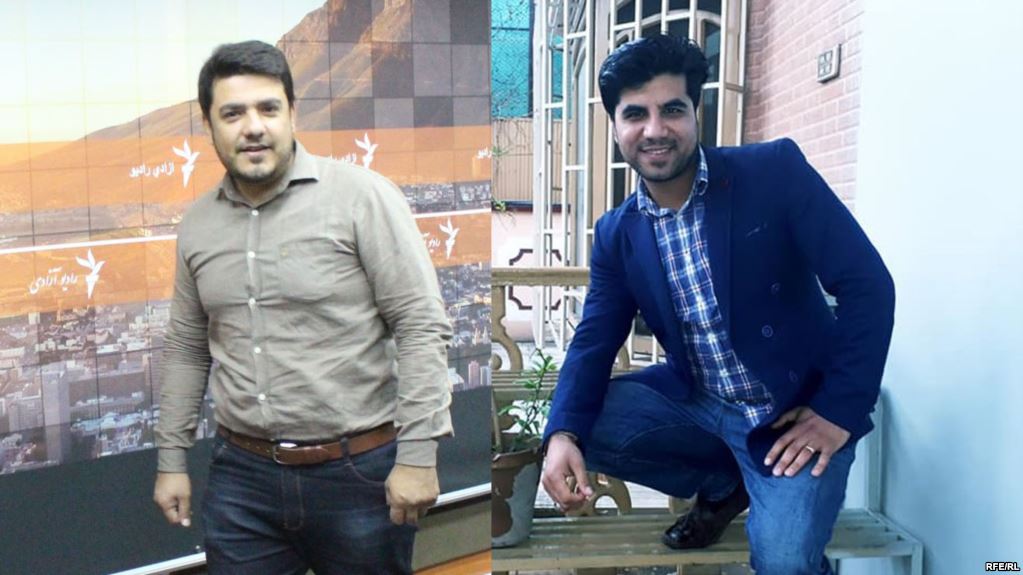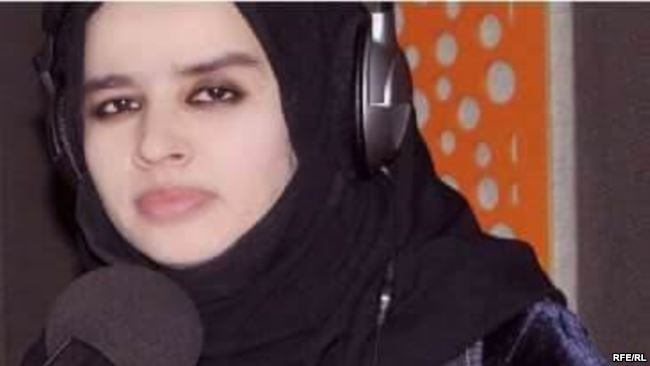Special to WorldTribune.com
By Ron Synovitz, Radio Free Europe / Radio Liberty
Radio Free Afghanistan journalist Abadullah Hananzai was furious on April 25 when he learned that a former colleague had been gunned down at a market in Kandahar in an apparent targeted killing.
“The murder of my former colleague at Kabul News, a great journalist named Abdul Manan Arghand, has greatly upset me,” Hananzai wrote in Pashto on his Facebook page. “Arghand is now a martyr for freedom of speech.”

It would be Hananzai’s last public Facebook post.
Hananzai and Radio Free Afghanistan video producer Sabawoon Kakar were among multiple journalists killed in a suicide bombing in Kabul on April 30. The journalists were covering an earlier suicide attack when a second bomber, disguised as a reporter, approached them and detonated his explosives.
Maharram Durrani, a 28-year-old university student who was training to become a journalist at the Kabul bureau of RFE/RL’s Radio Free Afghanistan, was also killed.
Claimed by Islamic State militants, the blasts killed at least 25 and injured 45. The Afghan Journalists Center said that, with nine reporters killed, it marked the deadliest attack against journalists in Afghanistan since the fall of the Taliban regime in 2001.
Abadullah Hananzai
Hananzai was a video journalist who had been working since October 2016 on an antinarcotics project at RFE/RL’s Radio Free Afghanistan — a project called Caravan Of Poison.
A graduate of Kabul University, Hananzai was 26 years old and was preparing to celebrate his first wedding anniversary on May 8.
He previously had worked for Kabul News and for Zhwandoon TV, as well as for the Educational and Cultural Center for Afghan Women.
Hananzai’s recent reports for RFE/RL focused on the social and economic implications of drug addiction in Afghanistan, as well as efforts by the Interior Ministry to crack down on international narcotics trafficking out of Afghanistan.
One of Hananzai’s last Facebook posts was a message in English on April 19 and a photograph taken of himself in the compound of Radio Free Afghanistan’s Kabul bureau shortly after a rainstorm.
“Feeling fantastic. I find Peace in the Rain,” Hananzai said.
Sabawoon Kakar
Kakar was one of the first journalists to arrive at the scene of the first suicide bombing in Kabul on the morning of April 30.
He died from his injuries at a hospital in Kabul several hours after the second blast.
Kakar was a key member of Radio Free Afghanistan’s video team over the past five years.
His work included feature stories about social issues in Afghanistan — such as the status of women’s cricket in the country — as well as news about counterterrorism operations and security issues.
Kakar’s last video report was on April 29 — a package he produced with RFE/RL reporters in the northern Afghan province of Baghlan about a battle between Afghan security forces and Taliban militants.
“He was often covering the aftermath of suicide attacks and other dangerous spot news situations,” said Qadir Habib, a senior editor for Radio Free Afghanistan. “He was a brave man who was never afraid to cover dangerous stories.”
On his Facebook page, Kakar declared that despite bombing attacks against voter registration centers in Kabul, he had registered and planned to vote in Afghanistan’s October 20 parliamentary elections.
The 30-year-old Kakar, a native of Kabul, died one day before his fifth anniversary as an RFE/RL journalist. He is survived by his wife and a two-year-old son.
Maharram Durrani

Maharram Durrani was a third-year student of Islamic law at Kabul University who was just starting her career as a journalist.
Durrani was being trained to take part in the weekly woman’s program on RFE/RL’s Radio Free Afghanistan — a job she was due to start on May 15.
She previously worked for an Afghan online music channel called Radio Salam Watandar.
“When I began working in media, one of my first bosses asked me why I was studying Islamic law but working in media,” Durrani told RFE/RL during a February phone-in program.
“He said these are not related subjects. But I said, ‘No, that’s not true’,” Durrani explained. “It’s very much related because the media can provide information to all people.”
